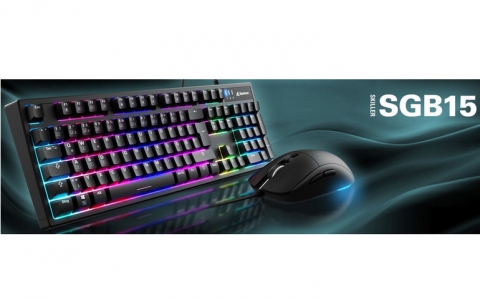
Adaptec’s Ultra320 SCSI First to Deliver Complete 64-Bit Computing Support
Adaptec today became the first company to introduce a complete Ultra320 SCSI solution with 64-bit computing support, allowing Ultra320 SCSI system OEMs and motherboard manufacturers to speed their deployment of next-generation, high-end computing systems.
The Adaptec Ultra320 SCSI solution combines support for 64-bit operating systems - crucial for the deployment of Ultra320 SCSI systems - and Adaptec's Ultra320-ready Extensible Firmware Interface (EFI) driver. The driver connects Ultra320 SCSI ASICs and host bus adapters to next-generation systems with 64-bit processors to give system OEMs and motherboard makers a jump start in designing Ultra320 SCSI products in preparation for next year's introduction of the native EFI driver model.
"A complete Ultra320 SCSI solution and a 64-bit architecture are a powerful combination for the next generation of high-end computing, and Adaptec's EFI driver and 64-bit operating system support provide that vital foundation," said Lee Caswell, vice president and general manager of Adaptec's Storage Solutions Group. "Adaptec has yet again demonstrated its leadership in establishing new storage-access benchmarks for the industry."
Future 64-bit computing will require EFI as the standard boot mechanism. Today's 32-bit systems use BIOS for hardware initialization, boot operations and configuration utilities such as Adaptec's SCSISelect® that must reside in the Electrically Erasable Programmable Read Only Memory (EEPROM). EFI allows these capabilities to reside not only in the EEPROM but in a hard disk, floppy drive or CD ROM, enabling the EFI driver to be loaded from any of the devices and eliminating the need to flash a new BIOS onto the motherboard.
EFI also simplifies the addition of operating system-neutral platforms to give original equipment manufacturers and firmware developers an infrastructure for adding capability to the platform in a modular way. Moreover, EFI opens the door to greater innovation in the design of operating systems and the freedom to migrate from legacy systems by effectively decoupling the operating system from the firmware.
With the addition of the EFI driver, Adaptec now offers 64-bit drivers for Ultra160 and Ultra320 SCSI solutions. Adaptec's Ultra160 64-bit drivers are embedded in major operating systems including the 64-bit versions of Windows and Linux.
About EFI
The EFI specification defines a new model for the interface between operating systems and platform firmware. The interface consists of data tables that contain platform-related information, plus boot and runtime service calls that are available to the operating system and its loader. Together, these provide a standard environment for booting an operating system and running pre-boot applications.
The EFI specification is primarily intended for the next generation of IA-32 and IA-64 architecture-based computers, and is an outgrowth of the "Intel Boot Initiative" (IBI) program that began in
About Ultra320 SCSI
Ultra320 SCSI is the leading-edge SCSI interface technology for today's server and workstation applications, delivering up to double the data transfer rates of Ultra160 SCSI, increased protocol efficiency and backward compatibility with previous generations of SCSI. Ultra320 SCSI is optimal for data transfer in mainline storage; NAS, SAN and RAID environments; and streaming video and audio applications.
"A complete Ultra320 SCSI solution and a 64-bit architecture are a powerful combination for the next generation of high-end computing, and Adaptec's EFI driver and 64-bit operating system support provide that vital foundation," said Lee Caswell, vice president and general manager of Adaptec's Storage Solutions Group. "Adaptec has yet again demonstrated its leadership in establishing new storage-access benchmarks for the industry."
Future 64-bit computing will require EFI as the standard boot mechanism. Today's 32-bit systems use BIOS for hardware initialization, boot operations and configuration utilities such as Adaptec's SCSISelect® that must reside in the Electrically Erasable Programmable Read Only Memory (EEPROM). EFI allows these capabilities to reside not only in the EEPROM but in a hard disk, floppy drive or CD ROM, enabling the EFI driver to be loaded from any of the devices and eliminating the need to flash a new BIOS onto the motherboard.
EFI also simplifies the addition of operating system-neutral platforms to give original equipment manufacturers and firmware developers an infrastructure for adding capability to the platform in a modular way. Moreover, EFI opens the door to greater innovation in the design of operating systems and the freedom to migrate from legacy systems by effectively decoupling the operating system from the firmware.
With the addition of the EFI driver, Adaptec now offers 64-bit drivers for Ultra160 and Ultra320 SCSI solutions. Adaptec's Ultra160 64-bit drivers are embedded in major operating systems including the 64-bit versions of Windows and Linux.
About EFI
The EFI specification defines a new model for the interface between operating systems and platform firmware. The interface consists of data tables that contain platform-related information, plus boot and runtime service calls that are available to the operating system and its loader. Together, these provide a standard environment for booting an operating system and running pre-boot applications.
The EFI specification is primarily intended for the next generation of IA-32 and IA-64 architecture-based computers, and is an outgrowth of the "Intel Boot Initiative" (IBI) program that began in
About Ultra320 SCSI
Ultra320 SCSI is the leading-edge SCSI interface technology for today's server and workstation applications, delivering up to double the data transfer rates of Ultra160 SCSI, increased protocol efficiency and backward compatibility with previous generations of SCSI. Ultra320 SCSI is optimal for data transfer in mainline storage; NAS, SAN and RAID environments; and streaming video and audio applications.















